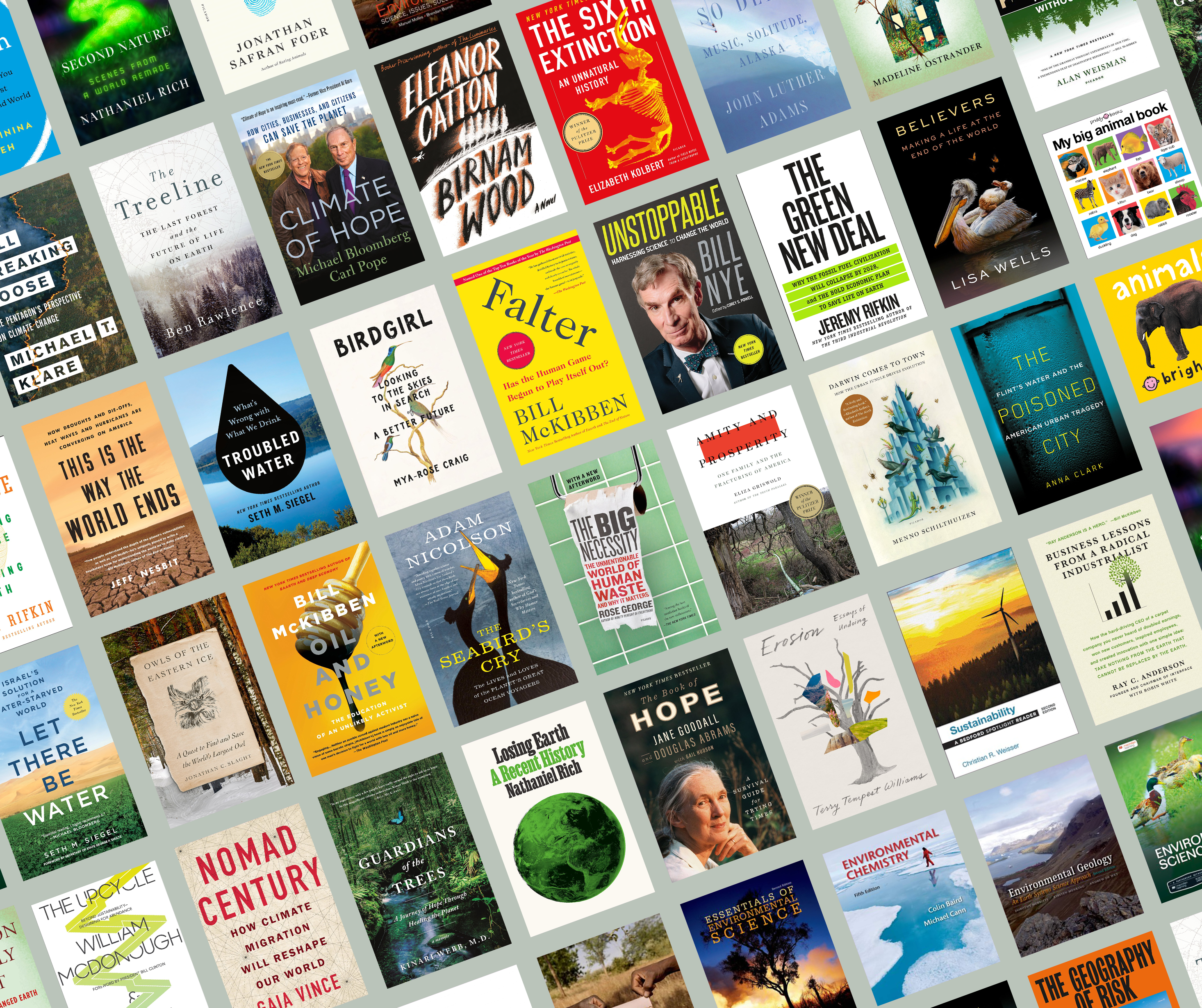
For more than a decade sustainability has been a core value of Macmillan. We aim to do less harm and more good to the Earth by actively pursuing sustainable practices to reduce and reverse the impact our business has on the environment. Globally, our operations have been carbon neutral since 2017 and in the US Macmillan has been carbon neutral for the last ten years. We decreased our global emissions 60% from 2010 to 2021, with US emissions decreasing 50% during that same period. Our commitment to sustainability is integral to the decisions we make and the company we have become.
Jon Yaged, CEO, Macmillan Publishers USA
As an educational publishing and solutions company, we have a unique opportunity to shape the world around us. To achieve this, we embrace sustainable practices throughout our operations, continue to seek innovative ways to minimize our impact on the environment, and educate the next generation of learners in global sustainability. Doing this is an investment in the prosperity of our company and the diverse communities we serve.
Susan Winslow, CEO, Macmillan Learning
A Work in Progress
Reducing our Carbon Emissions
Following in Anderson’s footsteps, Macmillan spent a year conducting a comprehensive investigation of our US operations, our practices, and the practices of those in our supply chain to determine our carbon footprint. We are committed to tracking all major sources of carbon emissions in our operations and global supply chain.
Our Goals
In 2010, we decided to prioritize the carbon dioxide emissions responsible for the climate crisis as our most pressing issue and set a goal of a 65 percent reduction of our scope 1, 2, and major scope 3 carbon emissions (over our 2010 baseline) by the end of 2020 for Macmillan USA. The largest area of environmental impact for a book publisher is from the manufacture of paper.
Our Findings
We have invested significant resources in becoming more efficient in our paper consumption and rigorously well informed regarding our paper supply. This dedication was rewarded with a reduction in the carbon intensity per metric ton of directly purchased paper required to print our books by 70% between 2010 and 2019.
Read Anderson’s book, or listen on audioCarbon Emissions
Since 2010, we have calculated our annual carbon emissions from our operations and much of our supply chain to track our efforts in accordance with the Greenhouse Gas Protocol for our global business. Moreover, since 2017 we have been carbon neutral for our global operations and entire supply chain, which is more than the other major publishers can say. Macmillan’s sustainability efforts cover every aspect of our working day, processes, and all the steps required to acquire, publish, print, and distribute books.
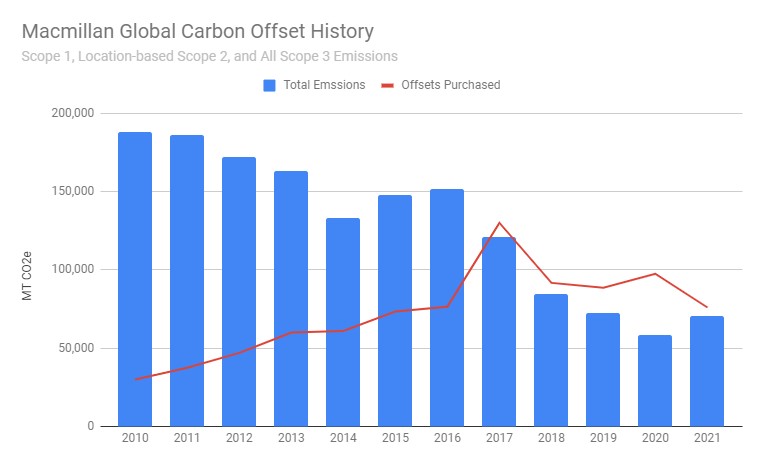
Note, this chart shows scopes 1, 2, and all scope 3 emissions. The scope 2 data are “location-based” and do not include renewable energy purchased via RECs or carbon offsets.
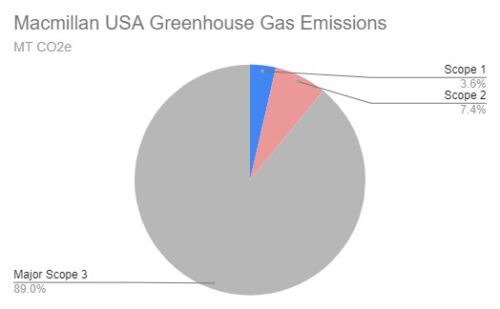
Emissions Breakdown
Carbon emissions can be sorted into three distinct categories in accordance with the Greenhouse Gas Protocol.
Scope 1 emissions are derived from heat in our facilities and fuel in our sales representatives’ cars.
Scope 2 emissions are derived from the electricity we purchase from utilities to power our buildings.
Scope 3 emissions are derived from our manufacturing and transportation of our books, business travel, employee commuting, and waste management.
We define and track “major scope 3” emissions as the most important parts of our business such as the paper we purchase directly and the distribution of our books. We estimate that “major scope 3” accounts for at least 55% of our full scope 3 emissions. Since 2017, we have been “carbon neutral” for all major and estimated minor scope 3 emissions.
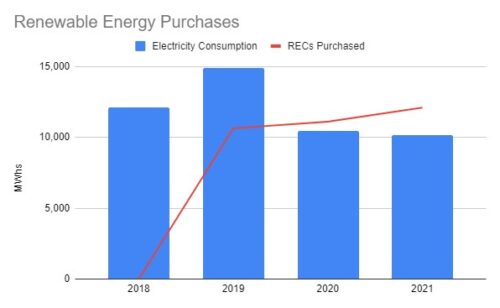
Renewable Electricity
In 2019, Macmillan pledged to procure 100% renewable electricity for our offices and warehouses by 2025 and we anticipate meeting this goal early!
Engagement & Transparency

Activism
Macmillan signed the “We Are Still In” & “America’s All In” pledges indicating our support for the Paris Agreement. This Agreement calls for countries to submit plans on how each will reduce its carbon emissions to not exceed a 2 degrees Celsius increase in average global temperatures above pre-industrial levels. We join over 3,900 corporations, lawmakers, college presidents, and cities in signing the “We Are Still In” declaration and more than 1,700 in “America’s All In.”

Rainforest Action Network
In the summer of 2018, Macmillan USA was recognized for our leadership in our Paper Sourcing Policy by the Rainforest Action Network’s Beyond Paper Promises campaign. Specifically, our use of certified papers, fiber testing and consequential engagement, as well as the prohibition of fibers from Indonesia, helped us secure this preferred ranking.
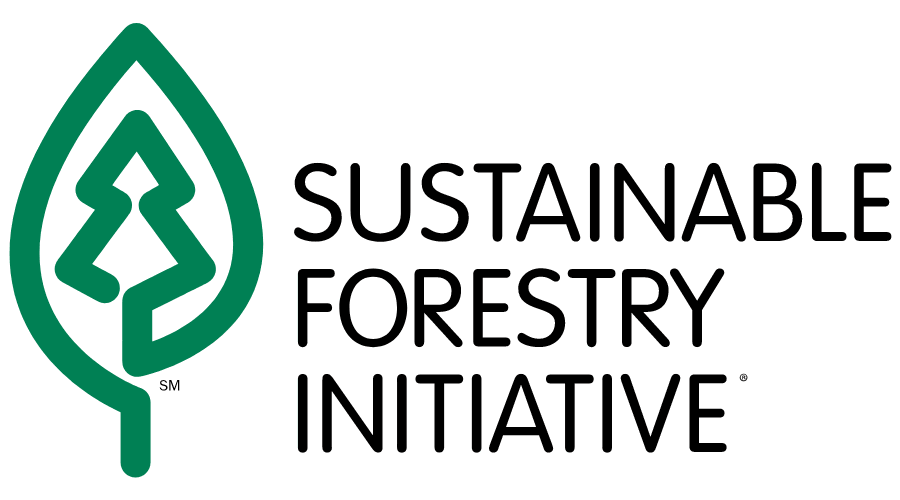
Sustainable Forestry
In 2012, Macmillan Publishers joined as founding partners of the Sustainable Forestry Initiative® (SFI) Forest Partners® Program demonstrating our commitment to sustainable forestry and to increasing the acreage of certified forests under certification. The SFI Forest Partners® Program facilitates the widespread certification of individual forest landowners and smaller paper wood product mills to the SFI standards along with state forests.

EPAT
Macmillan is an active user of the Environmental Paper Assessment Tool to enhance transparency and understanding between paper users and purchasers in the publishing and packaging industries.
learn more
AAP- Sustainability
Macmillan is a founding member of the Sustainability Working Group within the Association of American Publishers that is advancing environmental sustainability throughout the publishing industry.
learn more

